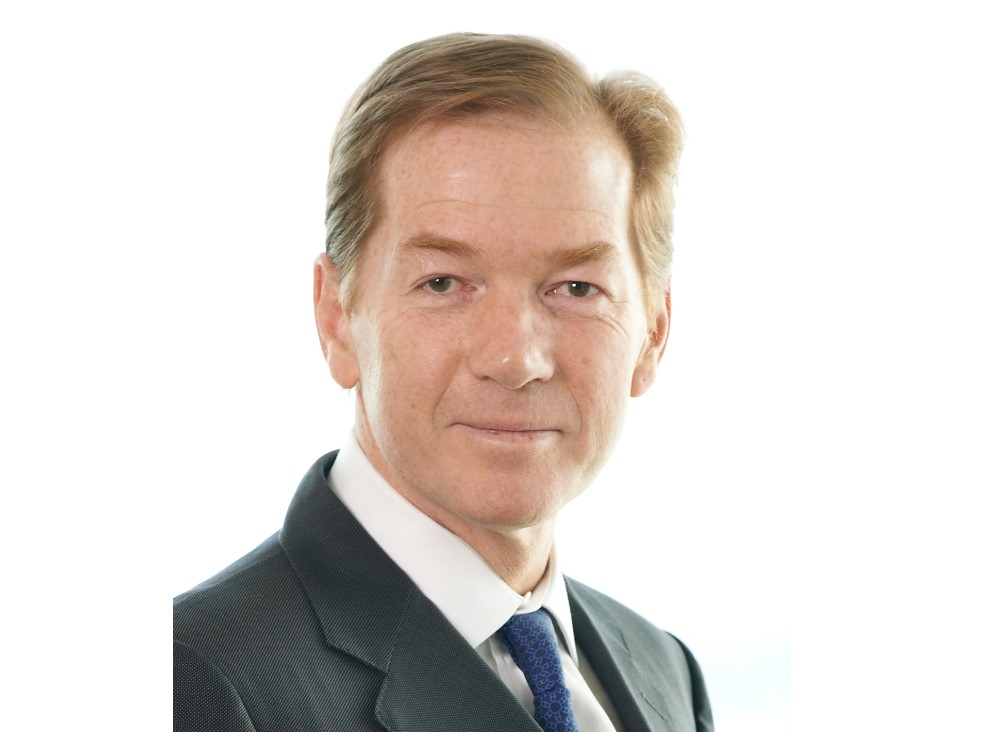A Biden Victory and Split Congress May Be Welcomed by Markets
| By Beatriz Zúñiga | 0 Comentarios

With President-elect Joe Biden facing a split Congress, investors could welcome the resulting “Biden-lite” agenda, which may include portions of his spending plans -such as fiscal stimulus and infrastructure investment- but little in the way of tax increases.
Biden’s apparent victory in the US presidential election marks an end to months of political uncertainty and turmoil. While both his victory and the outcome of the Senate races have yet to legally finalized, the base case in markets seems to be a Biden presidency and split Congress. This outcome may usher in a more diluted Biden policy agenda.
Indeed, the market narrative seemed to shift in the final days before the election: hopes of a Democratic “blue wave” turned into cheer around “Biden lite”, as Treasury yields declined and equity investors rotated from cyclical value stocks towards opportunities in growth and technology.
More broadly, the financial markets seemed relieved that this major political event was concluding, leading to a wave of risk-on sentiment in the US and globally. With a more incremental approach to policy changes under a Biden administration, we could see markets perform favorably as they benefit from more stable trade relations and better growth prospects heading into 2021. Markets may be buoyed by a return to a more multilateral approach to foreign policy, and the reduced uncertainty that may result.
Perhaps the key concern for markets under a Biden presidency was his proposed USD 4 trillion in tax hikes, including increasing corporate tax rates, capital gains taxes, and personal taxes on wealthy individuals. However, if Congress is divided, most -if not all- of these tax policies will be difficult to enact. And importantly, the Biden team may not view these as a year-one priority, as the pandemic and economic relief take center stage again.
Top priorities of a Biden-Harris administration
As President-elect Biden and Vice-President-elect Kamala Harris consider their key priorities in the weeks ahead, these focus areas could include:
1. Creation of a new pandemic taskforce: As the coronavirus pandemic remains rampant in the US and globally, one of the first priorities will be to address the virus head-on, with support from a new pandemic taskforce of scientists and medical officials. This will set guidelines to stop outbreaks, double down on testing and contact tracing, and invest heavily in vaccine distribution. This will mark a return to “relying on the science” as a fundamental pillar in managing the pandemic.
2. Fiscal stimulus: One area of agreement for both Democrats and Republicans is the need for an additional fiscal stimulus to provide pandemic relief. Thus far, Congress has issued nearly USD 3 trillion in stimulus, and Democrats and Republicans have proposed competing packages for a next round of stimulus of USD 2.2 trillion and USD 500 billion respectively. Both packages cover unemployment benefits, small business relief, and another round of stimulus cheques to households. We could certainly see stimulus passed early in the next presidential term, which is likely positive for risk assets.
3. More executive orders on climate and clean energy: Biden’s plan includes a USD 2 trillion investment in areas of clean energy, including wind, solar and renewable energy. While this policy would likely face opposition in a split Congress, we may still see a Biden presidency seek to push forward his climate and sustainability agenda via executive order, and he may appoint more “environmentally friendly” leaders to his cabinet. Overall, we could see new opportunities for sustainable investing. Some actions that he could take without the support of Congress may include rejoining the global Paris climate accord, reversing some of Trump’s executive orders on energy or signing executive orders to cut emissions.
4. Infrastructure investment: Another area where both Democrats and Republicans may ultimately agree is infrastructure investment. Both Biden and Trump have talked about investing in traditional infrastructure -such as the rebuilding of roads, bridges and airports- as well as technology like 5G and artificial intelligence. While the Biden team proposed a USD 1.3 trillion infrastructure package, we may ultimately see a smaller package approved by both sides, perhaps in the USD 750 billion range. This would nonetheless represent an important investment in US economic growth and potential jobs. It could also stimulate opportunities in the private markets space to help finance these critical projects.
5. Returning the US to the world stage: In addition to rejoining the Paris climate accord, Biden has also talked about restoring US membership in the World Health Organization (WHO), as well as repealing via executive order the travel ban on majority Muslim countries. Overall, a Biden administration would favor the US returning to the world stage as an ally and leader, aligning itself once again with its historical allies and perhaps coordinating globally on climate solutions. In terms of US-China relations, while Biden has pledged to be “tough on China”, he has indicated he prefers a less unilateral approach than his predecessor and plans to bring US allies, labour groups and environmental organisations to the negotiating table.
Reaching across the aisle
With a focus on reconciliation, a Biden administration may “reach across the aisle” for Cabinet and key position appointments. Indeed, there has been speculation that Biden may maintain Trump appointee Jerome Powell as chairman of the Federal Reserve and consider Republican senator Mitt Romney for the position of US Treasury secretary. Markets may welcome this balanced approach to governing, particularly in key roles impacting financial policy.
Markets like evolution, not revolution
Overall, the theme of a Biden victory and split Congress seems to be evolution rather than revolution -perhaps what voters and investors welcome most when it comes to government policy-. This outcome also lessens the probability of unintended consequences that we may have seen from a “blue wave”, such as rapidly rising interest rates which could be disruptive to markets. Also note that, historically, investors have seen seasonally stronger market returns from election day through year-end.
Implications for investors
Against this backdrop, we could see a broadening of participation across asset classes, with cyclical parts of the market performing alongside growth technology, and non-US markets playing catch-up, especially given more congenial global relationships and perhaps an ongoing softer US dollar. Notably, China and north Asia could benefit most from a thawing of tension, alongside better virus outcomes in that region overall.
In credit markets, with yields expected to remain stable and low, we would continue to see investors “hunt for income”. Our preferred credit risk includes parts of select high-yield assets (including “fallen angel” strategies), convertible bonds (which can participate in equity upside as well) and curve-steepened strategies that benefit from better growth and inflation potential.
Finally, we see potential areas of opportunity outside of traditional value/growth strategies, including infrastructure, clean energy, US housing, and technology infrastructure like 5G, all of which could thrive in a post-election environment.
A column by Mona Mahajan, US Investment Strategist in Allianz Global Investors
Investing involves risk. The value of an investment and the income from it will fluctuate and investors may not get back the principal invested. Past performance is not indicative of future performance. This is a marketing communication. It is for informational purposes only. This document does not constitute investment advice or a recommendation to buy, sell or hold any security and shall not be deemed an offer to sell or a solicitation of an offer to buy any security.
The views and opinions expressed herein, which are subject to change without notice, are those of the issuer or its affiliated companies at the time of publication. Certain data used are derived from various sources believed to be reliable, but the accuracy or completeness of the data is not guaranteed and no liability is assumed for any direct or consequential losses arising from their use. The duplication, publication, extraction or transmission of the contents, irrespective of the form, is not permitted.
This material has not been reviewed by any regulatory authorities. In mainland China, it is used only as supporting material to the offshore investment products offered by commercial banks under the Qualified Domestic Institutional Investors scheme pursuant to applicable rules and regulations. This document does not constitute a public offer by virtue of Act Number 26.831 of the Argentine Republic and General Resolution No. 622/2013 of the NSC. This communication’s sole purpose is to inform and does not under any circumstance constitute promotion or publicity of Allianz Global Investors products and/or services in Colombia or to Colombian residents pursuant to part 4 of Decree 2555 of 2010. This communication does not in any way aim to directly or indirectly initiate the purchase of a product or the provision of a service offered by Allianz Global Investors. Via reception of his document, each resident in Colombia acknowledges and accepts to have contacted Allianz Global Investors via their own initiative and that the communication under no circumstances does not arise from any promotional or marketing activities carried out by Allianz Global Investors. Colombian residents accept that accessing any type of social network page of Allianz Global Investors is done under their own responsibility and initiative and are aware that they may access specific information on the products and services of Allianz Global Investors. This communication is strictly private and confidential and may not be reproduced. This communication does not constitute a public offer of securities in Colombia pursuant to the public offer regulation set forth in Decree 2555 of 2010. This communication and the information provided herein should not be considered a solicitation or an offer by Allianz Global Investors or its affiliates to provide any financial products in Brazil, Panama, Peru, and Uruguay. In Australia, this material is presented by Allianz Global Investors Asia Pacific Limited (“AllianzGI AP”) and is intended for the use of investment consultants and other institutional/professional investors only, and is not directed to the public or individual retail investors. AllianzGI AP is not licensed to provide financial services to retail clients in Australia. AllianzGI AP (Australian Registered Body Number 160 464 200) is exempt from the requirement to hold an Australian Foreign Financial Service License under the Corporations Act 2001 (Cth) pursuant to ASIC Class Order (CO 03/1103) with respect to the provision of financial services to wholesale clients only. AllianzGI AP is licensed and regulated by Hong Kong Securities and Futures Commission under Hong Kong laws, which differ from Australian laws.
This document is being distributed by the following Allianz Global Investors companies: Allianz Global Investors U.S. LLC, an investment adviser registered with the U.S. Securities and Exchange Commission; Allianz Global Investors Distributors LLC, distributor registered with FINRA, is affiliated with Allianz Global Investors U.S. LLC; Allianz Global Investors GmbH, an investment company in Germany, authorized by the German Bundesanstalt für Finanzdienstleistungsaufsicht (BaFin); Allianz Global Investors (Schweiz) AG; Allianz Global Investors Asia Pacific Ltd., licensed by the Hong Kong Securities and Futures Commission; Allianz Global Investors Singapore Ltd., regulated by the Monetary Authority of Singapore [Company Registration No. 199907169Z]; Allianz Global Investors Japan Co., Ltd., registered in Japan as a Financial Instruments Business Operator [Registered No. The Director of Kanto Local Finance Bureau (Financial Instruments Business Operator), No. 424, Member of Japan Investment Advisers Association and Investment Trust Association, Japan]; and Allianz Global Investors Taiwan Ltd., licensed by Financial Supervisory Commission in Taiwan. 1400451










